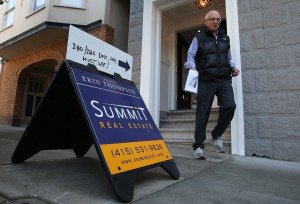Apartment hunters are well aware that prices in the city are at budget-busting levels. In San Francisco rents in July were up 8 percent over last year, according to a report out from real estate website Trulia.
Things aren't much better in Oakland, which has seen a 5.6 percent hike.
That puts both cities in the top 10 hottest markets nationwide.
|
# |
U.S. Metro Area |
Year-over-Year % change in rents |
Year-over-Year % change in home prices |
|
1 |
Seattle, WA |
11.1% |
16.0% |
|
2 |
Houston, TX |
8.5% |
10.2% |
|
3 |
San Francisco, CA |
8.1% |
17.2% |
|
4 |
Portland, OR-WA |
7.7% |
18.1% |
|
5 |
Denver, CO |
7.1% |
11.7% |
|
6 |
Miami, FL |
5.8% |
12.2% |
|
7 |
Oakland, CA |
5.6% |
31.0% |
|
8 |
Tampa-St. Petersburg, FL |
5.0% |
11.9% |
|
9 |
Dallas, TX |
4.9% |
12.6% |
|
10 |
Riverside-San Bernardino, CA |
4.7% |
24.7% |
|
11 |
Los Angeles, CA |
4.3% |
20.9% |
|
12 |
Orange County, CA |
4.3% |
23.3% |
The news isn’t all bad for renters in the Bay Area. There is hope that a construction boom could give soaring prices some relief.
“As new multifamily buildings come onto the market and add to the rental supply, we might see rents cool down because renters will have more units to choose from,” said Jed Kolko, the chief economist at Trulia.
